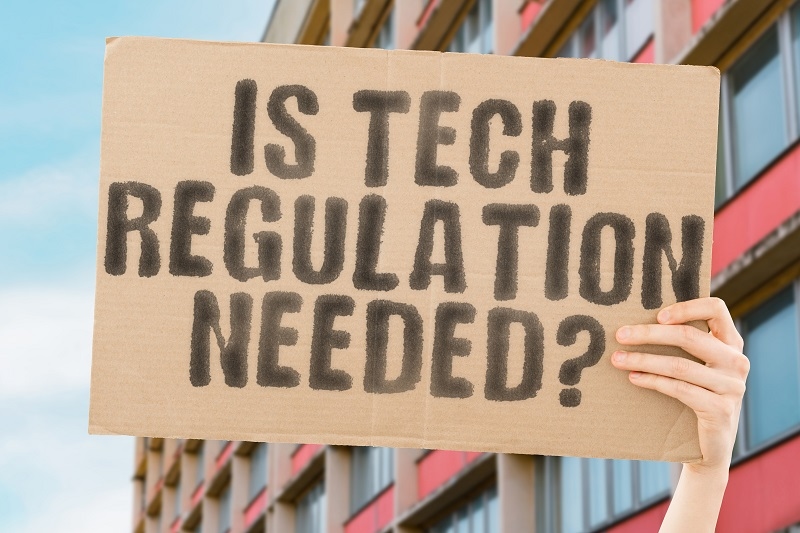
The momentum of tech region antitrust regulation is accelerating. As lawmakers and regulators are putting scrutiny on Big Tech, traders are paying close attention. New laws and enforcement movements are already reshaping the landscape, triggering both dangers and possibilities across the tech market. In particular, the Big Tech antitrust impact shares and the regulation impact on FAANG corporations have come to be the pinnacle worries for buyers navigating an unexpectedly changing economic and criminal environment. In this in-depth analysis, we’ll break down how those guidelines are developing, what the antitrust hearings funding effect might be, and how to investigate regulatory danger in tech shares through the use of clever tech sector oversight analysis.
Big Tech has expanded at a never-before-seen rate over the last ten years, raising concerns about monopolistic practices, market manipulation, and record privacy violations. A direct response to these worries is the current wave of antitrust laws in the tech sector. Regulations are being implemented by regulators in the US, EU, and Asia with the goal of boosting competition and lessening the market domination of a few historical giants.
For investors, the upward thrust of tech zone antitrust law way they must rethink lengthy-time period strategy, in particular in light of capacity breakups, fines, or new commercial enterprise regulations.
One of the most important worries for traders is the Big Tech antitrust effect on shares. These are the publicly traded corporations—specifically FAANG and similar tech giants—that are immediately in the crosshairs of recent regulatory movements.
These tendencies have created a brand new layer of volatility in an otherwise reliable growth quarter. For instance, a lawsuit ruling that breaks up elements of a tech corporation may want to dramatically alter its valuation model.
To live ahead, buyers are diversifying their publicity. Instead of placing all bets on Big Tech, they’re turning to mid-cap growth stocks, AI-focused small caps, and global tech firms that face fewer regulatory hurdles.

The regulation's impact on FAANG companies is significant in terms of how antitrust measures will reshape the tech industry’s shape and profitability. These groups have thrived in an environment of mild oversight; however, that technology may be coming to an end.
These changes indicate capacity revenue and margin compression for investors throughout the FAANG portfolio. It’s no longer just about growth—it’s approximately compliance.
Every time a high-profile CEO testifies earlier than Congress or an antitrust case hits headlines, market fluctuations follow. That’s why expertise in the antitrust hearings funding effect is crucial.
Investors need to song the felony calendar closely, preparing portfolios for any ruling or statement that would sway market sentiment or cause quarter-wide promoting.
A comprehensive tech region oversight analysis can help traders navigate this new regulatory technology. It’s no longer sufficient to have a look at profits and increase projections—you need to examine prison dangers and compliance vulnerabilities.
By appearing a rigorous tech region oversight evaluation, traders can distinguish between firms located to conform and people susceptible to disruption.
The law change in tech stocks is now a fundamental component in portfolio production. Risk doesn’t just come from terrible earnings—it comes from lawsuits, hearings, and coverage shifts. Strategies to Manage Regulatory Risk:
Smart allocation will let you ride the innovation wave at the same time as avoiding the worst of the fallout.
Investors who monitor one another's activity are better equipped to make quick adjustments to their plans and seize new opportunities.
As tech sector antitrust regulation intensifies in 2025, investors want to stay vigilant. The industrial enterprise landscape is converting as a result of expanded oversight, especially for dominant players. Stocks laid low with the Big Tech antitrust impact are already volatile due to fluctuating investor sentiment and a loss of clarity regarding the viable crooked effects. FAANG companies may additionally experience slower profits, forced divestitures, or more compliance costs because of the regulation, all of which may affect earnings predictions. Recent antitrust hearings’ funding effect has sparked marketplace reactions, highlighting the need for careful tech area oversight analysis.
While regulatory reform seeks to create an extra competitive digital marketplace, it also introduces regulatory threats in tech shares, in particular for portfolios heavily weighted in generation. Investors should diversify, display policy trends, and take a look at how those rules have an effect on income models. Navigating this evolving environment with insight and caution is important to balancing extended capacity with regulatory exposure in today’s tech-driven investment weather.
This content was created by AI